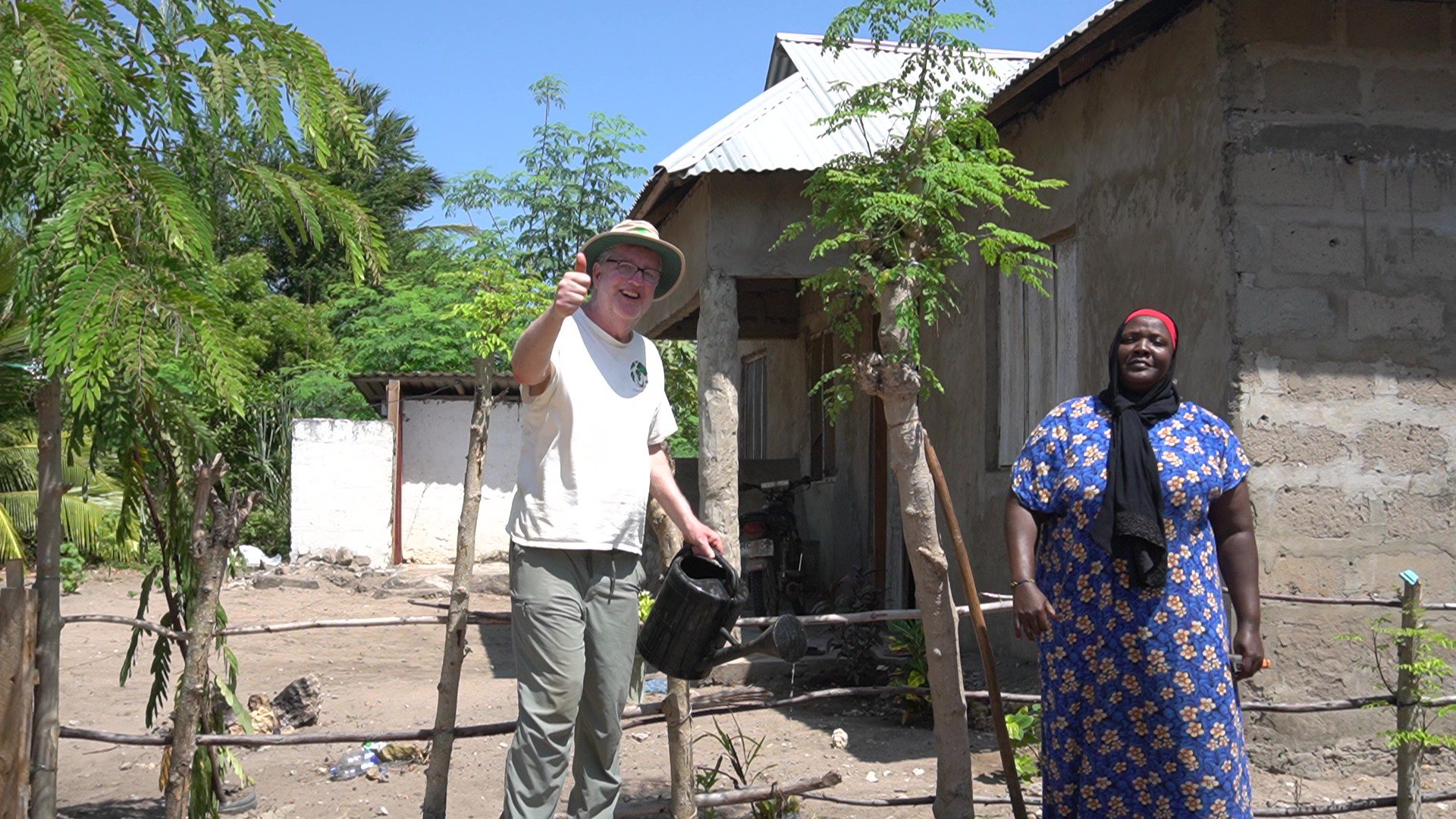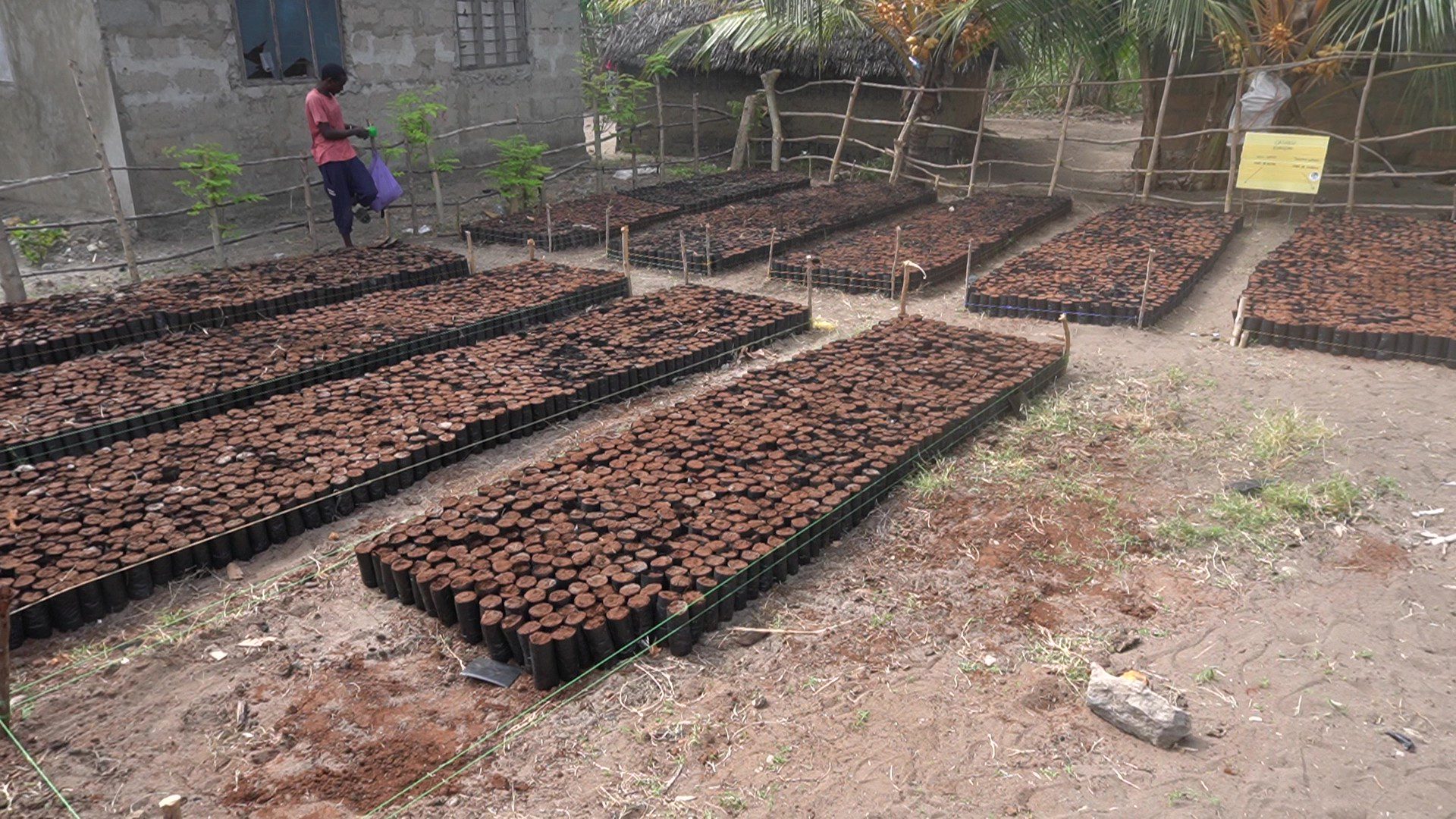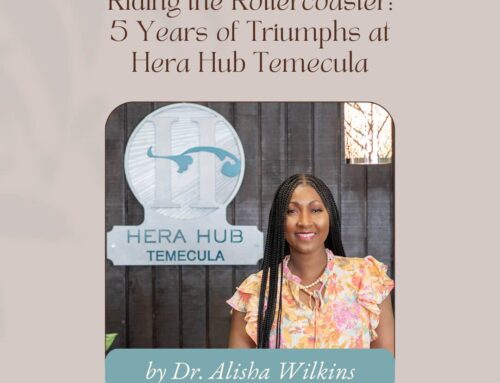At ForestPlanet, we approach reforestation like a business – with strategic, long-term investments. But instead of quarterly profits, our return comes in the form of healthier ecosystems and thriving communities. Our first consideration is the needs of the local people. What will motivate them to meaningfully engage in reforestation long after we are gone? Fortunately for us, the answer rarely changes: jobs and quality of life.
We met Esther through her nephew Daudi, who had already been working with us on one of our projects. She introduced us to her two children and shared a glimpse into their daily life in the small fishing town of Pangani, Tanzania. Esther had been working long hours at a rustic local restaurant, just barely scraping by. Despite the challenges, she owned a modest plot of land and a small home—extremely humble by any standard. Fortunately, her home is located in the heart of Pangani where she has a strong social network.

We asked ourselves how we could create an opportunity that would benefit Esther, her family, her community and our reforestation work? The answer: water, renewable energy, and a tree nursery.
The Well
With the help of our local partner, Friends of Usambara Society, we built a well right in Esther’s backyard. This well isn’t just for her. It’s the sustenance of a new seedling nursery for avocado, mango, and cashew trees. This well has also transformed Esther’s daily life—no more half-mile treks to fetch water. She can now cook, clean, and care for her children with greater ease and dignity.
Solar Power
We installed three solar arrays at Esther’s home. These panels fuel a portable battery system that we will use to pump water from the river to the mangrove seedlings in the dry season (more on our new water pump later). We don’t need a great deal of power so the excess solar energy is all Esther’s. Before this, her home had no electricity. Now for the first time she and her children can read, cook, and enjoy their evenings even after the sun sets.
The Tree Nursery
Esther’s backyard is now home to a vibrant nursery of 25,000 seedlings – cashew, avocado, and mango trees. We hired a dozen local residents to help set it up, and the daily care is a true community effort.

The main reason we are supporting this nursery actually is not for Esther. It’s for the community since the trees will be distributed free of charge to them. These fruiting trees will provide food and income to hundreds or maybe even thousands of people. The result will hopefully be less pressure on the nearby mangrove forests which have been nearly decimated by the local people for lumber. Our rationale? If people have enough income and/or food, they’re less likely to cut down the mangroves. And we aren’t just hoping this will be the case. We will require people to publicly ‘promise’ not to stress the mangroves before they can receive their seedlings. We hope to fund 25,000 trees each year so that before long there will be hundreds of thousands of fruiting trees located all throughout the village.
A Brighter Tomorrow
Esther’s new job is more than just employment. She’s now a key player in our mission to restore landscapes and fight climate change, all while improving life for herself, her family, and her community. We can’t wait to return this June, see the progress firsthand and sit down once again for dinner with Esther. She’s already talking about building a bigger, better home and we have no doubt she’ll make it happen.
About the Author

Hank Dearden is the Executive Director of ForestPlanet, a small non-profit organization dedicated to supporting large-scale, low-cost reforestation efforts. A natural connector, Hank is passionate about renewable energy, tree planting, and exploring new places by bicycle. He thrives at networking events, live sporting events, concerts, music festivals, reunions—essentially any gathering that offers the opportunity to meet interesting people and learn something new.
LinkedIn: www.linkedin.com/in/hankdearden
Facebook: www.facebook.com/hank.dearden





